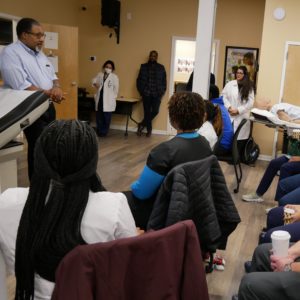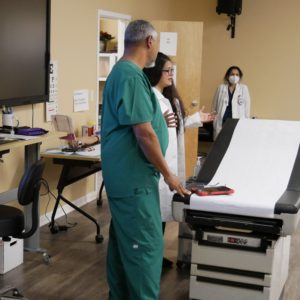Update from the Office of the Provost: Residency Applications
The July 7th issue of Jama published a viewpoint article titled:” Potential Implications of COVID 19 for the 2020-2021 Residency Application Cycle.” AUIS students who have access to the journal, I strongly recommend they take time to review the article. I have taken the liberty to summarize some of the key points made by its author, May M Hammound.
It is expected that in the 2020-2021 academic year, more than 40,000 medical students and physicians will apply for residency positions in the United States. As a result of the COVID 19 pandemic, the process of applying will be “distinctly different” from previous years. The pandemic will certainly stress an already stressful process, the author also suggested that this was an opportunity for change and possibly “systemic improvements.”
“Sometimes the object in the path, becomes the path”
Prior to the COVID 19 pandemic, many have recommended reform in the residency selection process. A topic that I have addressed in previous updates. In the past, applicants for residency programs in the 2019-20 cycle applied to an average of 65 programs, and international medical graduates (IMGs) applied to an average of 137 programs. This number of applications does not improve match rates and results in significant cost burden to applicants as well as volume overload for program directors. Hammound queries whether COVID 19 may spur an increase in the number of applications? As a result of USMLE testing centers being closed, fulfilling the requirement for IMGs to pass Step 2 CK to obtain certification from the Educational Commission for Foreign Medical Graduates (ECFMG) to apply to a US residency program becomes problematic. Added to this conundrum, is the fact that many medical schools have shortened clerkships, shifted to virtual rotations, canceled rotations, and electives resulting in a reduction of student opportunities to obtain faculty evaluations, letters of recommendation, and communicate their interest in respective programs.
Additionally, program directors will have potential difficulty in determining which applicants to interview without the use of traditional screening metrics. Considering other logistic difficulties include travel disruptions, social distancing requirements and with recent increases in the infection rate, possible social isolation maybe implemented?
Temporary solutions have been proposed, including:
- Virtual interviews
- Waiving requirements for USMLE scores and letters of recommendation
Hammound points out that the number of interviews an applicant attends has in the past been limited by “time and travel expense.” Many programs are known to overinvite the same pool of highly qualified applicants with just 7-21% of the applicant pool filling half of all interview slots in some specialties. (Lee et. Al. Laryngoscope 2019; 129 (3).
AUIS students should be aware that despite the challenges, suggestions have been made to improve the process and may ultimately improve a much need overhaul of an antiquated system. The following is a list of some of the proposals, I encourage our student body to review the article to further these suggestions in detail:
- Adjust the residency application timeline (allowing students more time of complete application requirements.)
- Modify Application requirements. ( Consider applications unable to receive USMLE Step 2 CK scores)
- Encourage holistic review (Consider applicant’s attributes, aptitudes, experiences?)
- Limit the number of applications (holistic only possible if applicants limit the number of applications)
- Improve the quality of information programs receive (standardizing the MSPE to address applicant’s integrity, reliability, motivation, professionalism)
- Temporarily make exceptions to the NRMP all-in-policy (consider accepting students outside of the match)
- Cap the number of interviews a student can accept (limiting the number of interviews a student can accept, preventing over interviewing and limiting the number of interview slots available for others.)
- Implement preference-signaling mechanisms (allow applicants to designate preferred programs could improve the process)
We the faculty and administration of AUIS, strongly support our student body, stay current with frequent updates, and share in our graduating student’s consternation regarding the match. As provost, and previous member of both neurological surgery and emergency medicine residency selection committee’s, will monitor recommendations and changes in this evolving situation.
Don W. Penney MD.MSC.FACEP.
Neurological Surgeon
Provost/Dean of Clinical Affairs, AUIS.


